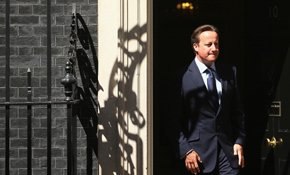There are three metrics which are widely regarded as the key drivers of election success: who would best run the economy, who would make the best Prime Minister, and voter identification with the party. Get ahead on all three and victory should be assured.
The Conservatives are coasting on the first two, maintaining something like a 10 per cent lead. But on the third, “party id”, they are behind. You would expect to get all three – the first two almost imply the third. The Conservative failure to persuade voters that they are “on their side” remains a huge problem. Indeed, they were 4 per cent behind in 2010 – even when they won seven per cent more votes than Labour, and the electorate blamed Labour for busting the economy.
You would normally expect all three to go together; we need to understand why they are adrift. Recently, there has been a fresh outbreak of infighting about ‘modernisation’, and this polling fuels the debate about the Conservative “brand”. It must be correct that Conservatives need to win over a significant proportion of ethnic minorities, and this requires a long-term effort to change the party. And talking a lot about immigration and Europe might hurt with centrist voters, even if it wins back some from UKIP. But the real modernisation issue, the one that I believe is the cause of low “party id” scores, is rarely addressed: how to make the Conservatives convincingly “on the side of ordinary people” (50 per cent think of Conservatives as being “only for one section of society”, while it’s just 20 per score for Labour, a really huge advantage for them).
There is surely no problem with an Etonian being prime minister. Voters are not so chippy. And the Tories were viewed this way long ago – even when they were led by a man from South Wales, the son of a Romanian immigrant shopkeeper. But the “two-toffs” problem cannot be lightly dismissed: the fact that the two main figures in the Conservative party, who soak up the lion’s share of attention, are old friends from a very specific stratum of society only serves to emphasise the Tories’ biggest brand problem. Of course, that can’t be helped – not only is Cameron viewed as likely to make the best Prime Minister, Osborne also has a 10 per cent lead over his rival.
But the Conservatives should ask themselves whether their lead on “the economy” is misleading them – maybe they are seen as, yes, creating growth; but no, not so much for ordinary people. In a poll that YouGov conducted for The Times we saw that people believed that the economy as a whole was doing well, but – crucially – not in their own neighbourhood. They see themselves as slipping behind. A smaller slice of a bigger pie is not an attractive prospect. People want an enlarging share of an enlarging economy – more growth and more equality. Who can deliver that?










